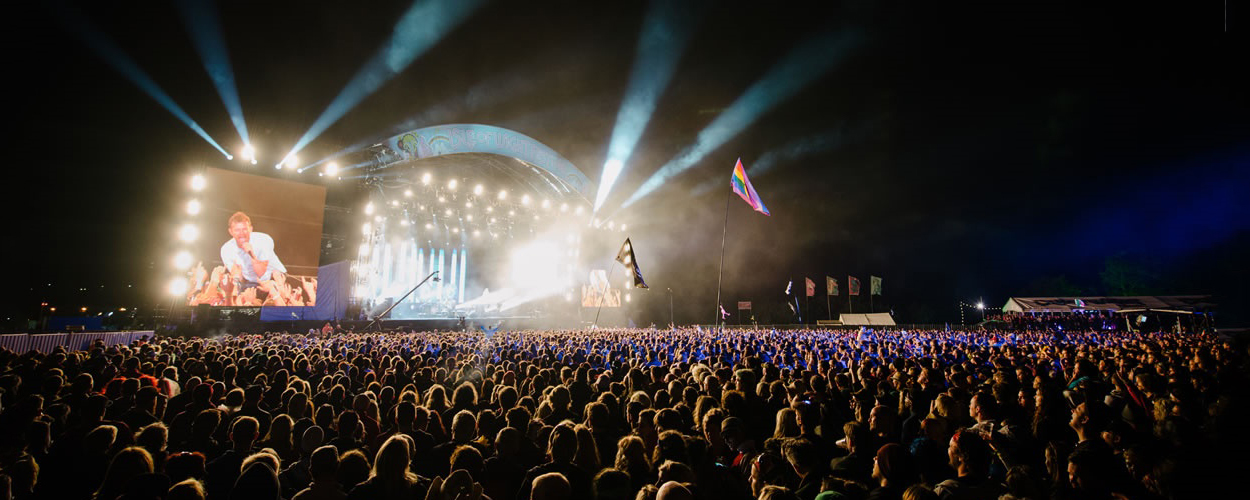This website uses cookies so that we can provide you with the best user experience possible. Cookie information is stored in your browser and performs functions such as recognising you when you return to our website and helping our team to understand which sections of the website you find most interesting and useful.
Business News Gigs & Festivals Live Business
Festivals criticised for male-dominated line-ups
By Andy Malt | Published on Monday 29 March 2021

A number of UK festivals have been accused of making a “statement of exclusion” by announcing line-ups that skew almost entirely male, certainly at the headliner level. However, one festival booker argues that such events are an “easy target” because they release line-up posters that simply show “the hierarchy of the music industry”.
The Isle Of Wight and TRNSMT festivals announced line-ups last week, both featuring Liam Gallagher and Snow Patrol among their headliners. According to The Guardian, The Isle Of Wight Festival’s current line-up is 73% male, while TRNSMT’s is 61% male. Meanwhile, Kendal Calling also announced an initial line-up with 79% male performers.
Kendal Calling is signed up to Keychange, the PRS Foundation’s initiative calling on festivals to pledge to have line-ups featuring 50% women and gender minorities by 2022.
The Foundation’s UK Project Manager Maxi Gedge tells The Guardian: “It’s totally unacceptable that after a year of turmoil, women and minorities are being excluded from this return to live. We usually stay on the positive side instead of calling people out, but we’re getting tired. It’s not an accident any more, it’s a statement of exclusion. The fact that this keeps happening shows that there are certain festivals that just aren’t taking responsibility, or they’re not viewing it as their responsibility when, in actuality, it’s everyone’s”.
However, Kendal Calling programming director Emma Zillmann – also talking to The Guardian as part of its report on the latest male-skewed festival line-ups – denies that this is the case. She says that while the event’s line-up has been growing its female representation, the number of performers coming up through the music industry is simply not growing fast enough.
“It’s not like it’s something I took my eye off because of the pandemic”, she says. But “the amount of relevant, affordable, available artists that we haven’t had before is so small. Once you get to the level of an artist that [sells more than] 400-500 tickets regionally, it becomes a lot harder [compared to emerging artists]. Is it the music industry being geared towards male acts? A lack of role models? Sexual harassment? A lack of childcare or not having somewhere to change?”
Also, she goes on: “Kendal Calling’s audience are not really clamouring to see those artists, which makes things a little bit difficult for me. I don’t dispute that everyone should be trying harder. It’s not just festivals – we’re just the endpoint. We’re an easy target because we have a poster that clearly shows the hierarchy of the music industry”.
It is true that, even with those festivals that have managed to get closer to a 50/50 split across their full programmes, things tend to skew more and more male the higher up the line-up you get. And headliners tend, more often than not, to be men. Event organisers have also said that things have been made more difficult this year because the pandemic has ruled out booking international acts, as it is unclear if they will be able to travel across borders in time for festivals this summer.
Still, despite all of those arguments, it also remains true that these events are not accurately representing the range of female and non-binary talent in the UK. And with research showing that many musicians are thinking of leaving the industry altogether as a result of financial losses during the pandemic, now it is more important than ever to support a diverse range of performers.
Also, while music fans are unquestionably keen to get back to gigs and festivals, you do have to wonder how eager they really all are to see Liam Gallagher yet again.





